Ethics Hub
Balancing the interests of your client and your professional client
As a Costs Lawyer, your client is the person for whom you act, including (where the context permits) a prospective or former client.
You may be instructed by another professional, such as a solicitor or barrister (your ‘professional client’), to provide services in relation to a client for whom they are acting. In this situation, the person or organisation who has instructed your professional client is your client, and might sometimes be referred to as your ‘underlying client’ or ‘ultimate client’.
As a Costs Lawyer, you have duties and obligations to both your ultimate client and your professional client, as set out in the Code of Conduct. However, your duty to your ultimate client always prevails.
There may be times when your duty to your ultimate client conflicts with your duty to your professional client in some way. The information on this page explains the distinction between these different types of clients, your obligations, and what to do in the event that the interests of your clients differ.
About Costs Lawyers’ clients
Data included in the CLSB’s report, The Costs Lawyer Profession in 2023, showed that over half of all Costs Lawyers were instructed exclusively by other legal services providers, such as solicitors or barristers, and this proportion is increasing. Only around 20% of Costs Lawyers received some instructions from lay clients directly in the last three years (that is, received instructions without a professional client being involved), and only about 15% of Costs Lawyers do more than 10% of their total workload for lay clients.
A research project commissioned by the CLSB in 2022 found that there is a widespread perception within the Costs Lawyer profession that ‘the client’ is the instructing solicitor or other professional, and this applies regardless of whether the Costs Lawyer is working in a firm of solicitors or in a costs law firm.
A key recommendation from the research project was for the CLSB to highlight the distinction between a Costs Lawyer’s professional client and a Costs Lawyer’s ultimate client i.e. the person who has instructed the professional client or other intermediary.
Your main obligations
It is important to remember that, whilst you may be instructed by a professional client or other intermediary, your client is in fact the person or organisation who has instructed your professional client or intermediary. Your overriding duty is to that client, and you must act in that client’s best interests regardless of the consequences for your professional client. In the event of a conflict, the interests of your ultimate client take precedence over those of your professional client.
This distinction is reflected in Principle 3 of the Code of Conduct, which states:
“You must act at all times in the best interests of your client, except where this conflicts with your duty to act independently in the interests of the proper administration of justice or where otherwise permitted by law. You must act in the best interests of your client regardless of the consequences for your professional client or other intermediary. You must not permit a professional client, employer or any other person to limit your ability to fulfil this duty.”
All of the requirements of the Code of Conduct apply to your dealings with your clients, as well as your professional clients. This includes duties such as ensuring your client is able to make informed decisions about the work being undertaken on their behalf and costs incurred (Principle 4.6 of the Code of Conduct).
You should bear in mind at all times that your client’s knowledge and understanding of legal issues, and the legal system in general, may be different to that of your professional client. Lay clients and vulnerable clients, for example, are more likely to have a low level of experience of dealing with legal matters. You should not assume that your professional client has met all of your ultimate client’s needs in terms of providing appropriate information and ensuring understanding. This is your responsibility, too.
Conflicts between your ultimate and professional clients’ interests
There may be times when the interests of your ultimate client conflict with the interests of your professional client in some way. For example, prioritising the interests of your ultimate client may mean that:
- a matter takes more time to resolve, despite your professional client’s desire to recover their fees quickly
- you need to query billing or business practices used by your professional client in relation to their work for your ultimate client
- you need to confirm information or instructions provided by your professional client with your ultimate client
Your duty is to act in the best interests of your client, regardless of the consequences for your professional client or intermediary; the interests of your ultimate client must take precedence.
This remains true even if you work in a solicitors’ firm and your professional client is a colleague or your employer (the firm itself). Your employment contract should not contain provisions that seek to override your professional obligations.
Reporting and your professional client
As a Costs Lawyer you also have obligations to maintain your independence and act with honesty and integrity at all times, and to not act in any way which is likely to diminish the trust the public places in your or in the profession of Costs Lawyers (Principle 1 of the Code of Conduct).
If you become aware during the course of a matter that your professional client has acted in a way that would have a negative impact on your ultimate client, you will need to consider whether you are able to continue acting in the matter. You will also need to consider whether further action is needed, for example, alerting your professional client’s regulator.
In considering what course of action to take in the event of a conflict of duties or client interests, you may find the other resources in the Ethics Hub helpful.
